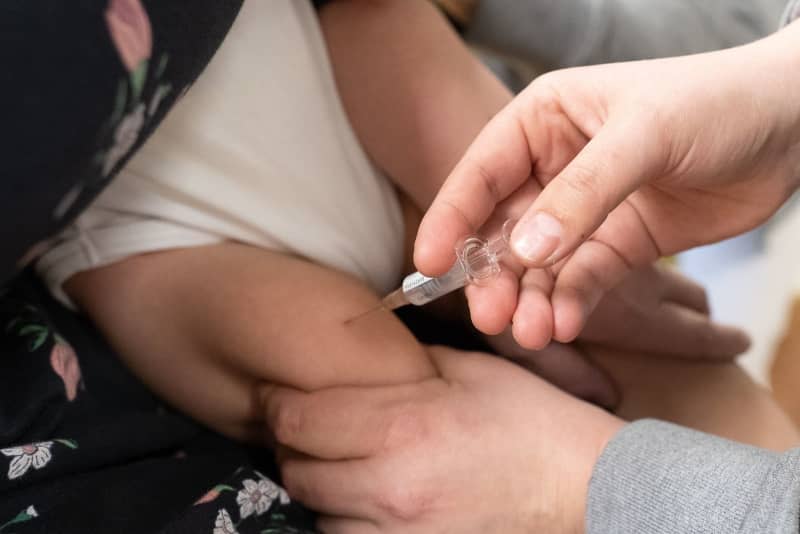RSV season: New vaccines to protect your infant

Your infant has a runny nose, shows no interest in their bottle or your breast, and seems to be having trouble breathing? The culprit could be respiratory syncytial virus (RSV).
The annual wave of RSV infections has begun, according to the Robert Koch Institute, Germany's public health institute. In Germany and other regions with similar climates, RSV season generally peaks in the winter.
Here are some questions and answers about protecting your child from the common respiratory virus, which usually causes mild, cold-like symptoms but can lead to serious illness in infants and older adults:
Which children are at particular risk of serious illness from an RSV infection?
People of any age can be infected, and it's almost impossible to avoid the virus altogether. "Nearly all children will have had an RSV infection before their second birthday," says Dr Marcus Krüger, head of the Neonatology Clinic at the Munich Municipal Hospital Group's Schwabing and Harlaching campuses.
While an infection may merely cause the sniffles in children of nursery-school age, there's a high risk of serious illness for those 6 months old and younger, especially if they were born prematurely or with a condition such as a heart defect or Down's syndrome.
This occurs when an RSV infection spreads to the lower respiratory tract. "RSV can cause bronchiolitis: swelling, inflammation and narrowing of the small airways in the lung that can make it very difficult for children to breathe," Krüger says. It can also cause pneumonia.
Hospitalization may even be necessary. "Children can be given additional oxygen in hospital, but there aren't any medications that shorten the course of the illness," he says.
How can you protect your child from RSV?
One new option is a vaccine called Abrysvo, approved by the European Medicines Agency (EMA) in August 2023. It protects against lower respiratory tract disease (LRTD) caused by RSV in adults 60 years of age and older and is also approved for use by pregnant women to protect their baby against LRTD from birth through 6 months of age.
"Expectant mothers [injected with the vaccine] produce antibodies that are transferred to the unborn child, providing them with direct protection during the critical first weeks and months of their life," Krüger says.
In a position paper, several professional medical societies recommend that pregnant women receive the vaccine after the 32nd week of gestation.
How can a child be protected from RSV after birth?
To help prevent newborns from severe RSV illness, an RSV antibody vaccine was recently approved. It's called Beyfortus and contains the active substance nirsevimab.
"So if the mother hasn't been immunized [against RSV] and a sibling is ill, you can use this new passive vaccination [ie introduction of antibodies into the body] to protect the newborn," Krüger says.
Injected into the thigh muscle, the vaccine is effective for about five months, providing protection for an entire RSV season.
"Until now there had only been a passive antibody vaccine for premature newborns [and other high-risk infants], and it had to be given monthly," Krüger says, whereas the new vaccine is indicated for all newborns.
It's also good to know that in addition to Abrysvo, there's a second vaccine for adults 60 years of age and older to protect them against LRTD from RSV: Arexvy.
The vaccines can indirectly protect children as well, points out Krüger, "for instance by helping to keep Grandpa from being infected with RSV at the supermarket and then passing it on to the grandson he's looking after."

